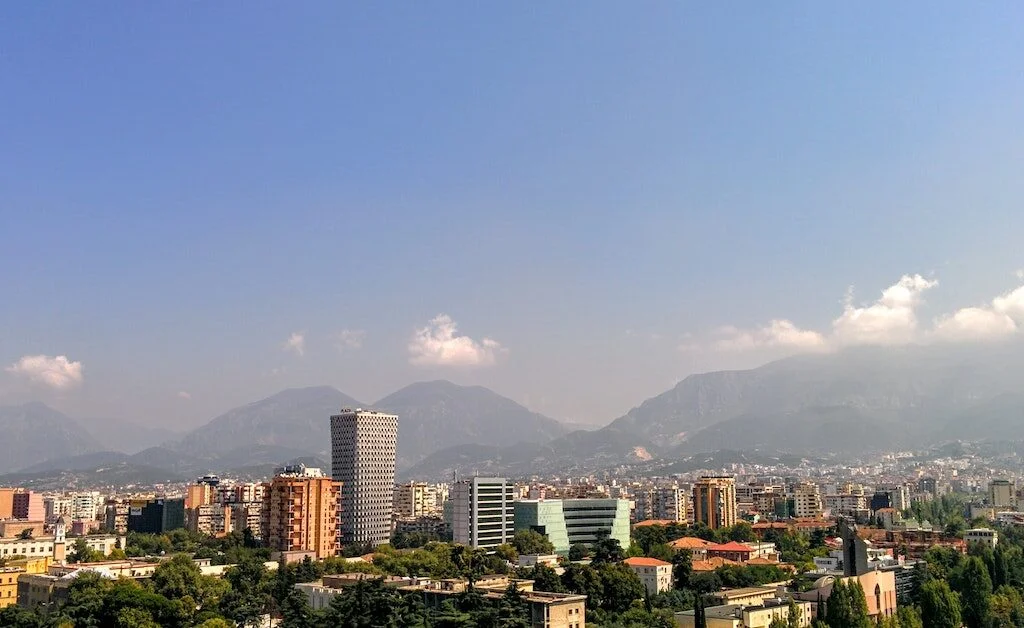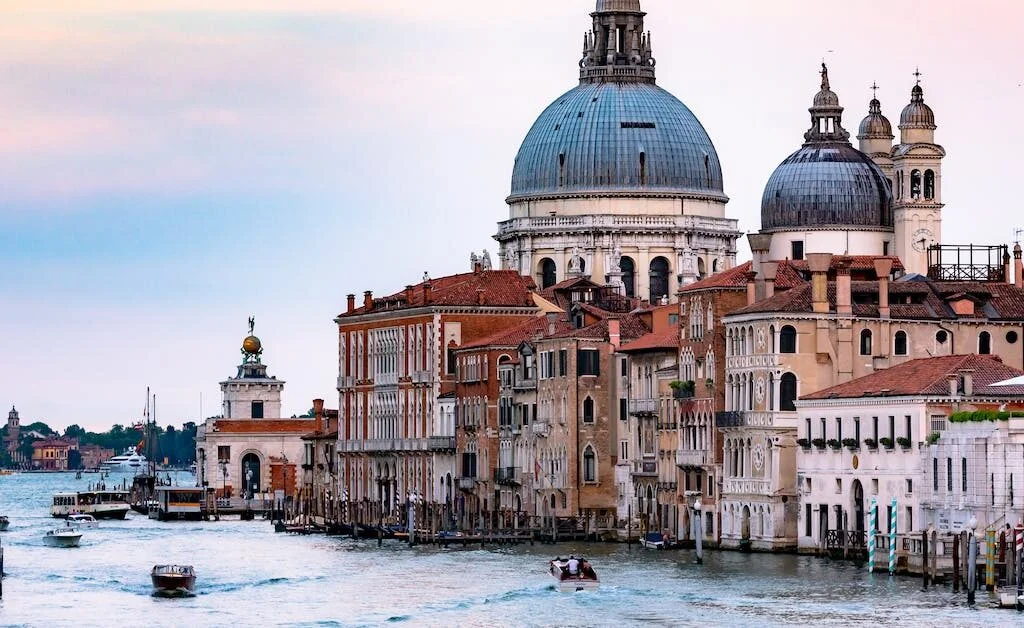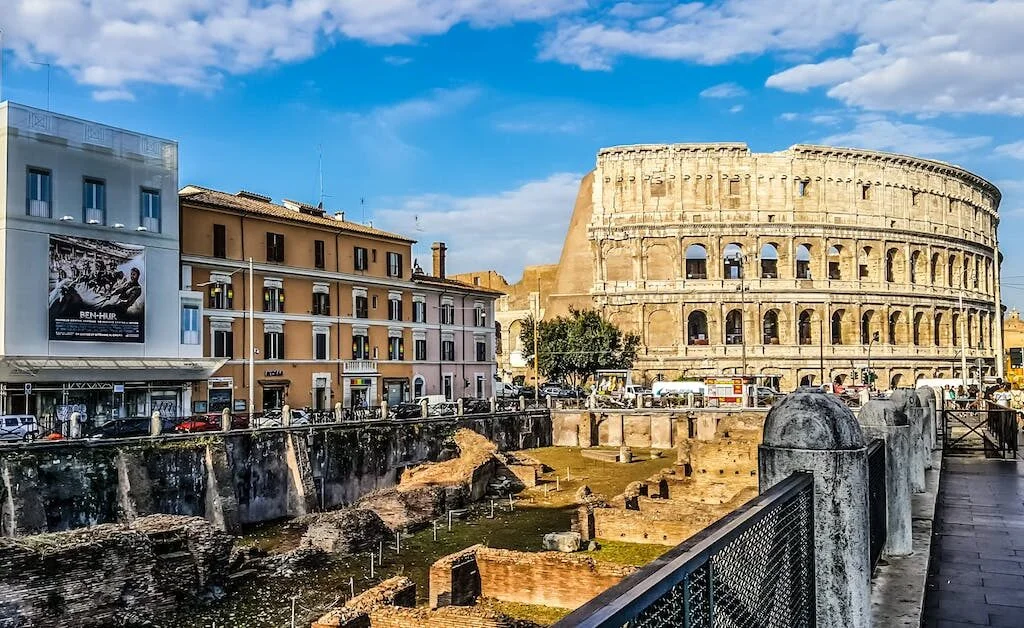Greece, with its brilliant sandy seashores and clear, purplish blue oceans, is an objective that entices explorers from around the world. This sun-kissed heaven, settled at the junction of Europe, Asia, and Africa, flaunts a different scene painted with lively tones. Beyond its picturesque coastlines and majestic mountains, Greece is a land of warm hospitality and laid-back living. A Greek occasion offers the opportunity to relish life’s straightforward delights, whether it’s a relaxed stroll along the coast or tasting hot Greek espresso while watching the dawn. For those seeking adventure, Greece doesn’t disappoint with activities like hiking, mountain biking, and scuba diving, which lead to hidden pockets of Grecian wonder. So the question is what is the best time to visit Greece?
Moreover, Greece’s vibrant cities, like Athens and Santorini, come alive at night, offering pulsating nightlife experiences. Greek cuisine, known for its bold and clean flavors, complemented by the freshest seafood, is a journey for your taste buds. But when is the best time to visit Greece for an exhilarating vacation? Let’s explore Greece throughout the seasons.

A Year in Greece: Exploring the Seasons
Greece is a destination with distinct seasons, each offering a unique experience for travelers. Choosing the right time to visit can significantly impact your Greek adventure.
Peak Season (Summer: July–August)
During the scorching Greek summers, especially in July and August, the country transforms into a bustling hotspot. Iconic destinations like Santorini, Mykonos, and Rhodes teem with tourists. The temperatures range from 15 to 33°C, making for hot and occasionally rainy conditions. However, coastal areas and islands enjoy cool sea breezes, providing some respite.
As the peak tourist season, summer sees local Greeks taking their annual leave, joining the visitor crowds in full force. The entire country springs to life with numerous festivals and vibrant celebrations. In the event that you’ve generally longed for a bright Mediterranean occasion, best time to visit Greece and this is the best chance to make it a reality. You can partake in Greece’s lively art and cultural festivals, and the local feasts on Ikaria are not to be missed.
However, with peak season come the inevitable crowds, so plan extra time for your itinerary, make restaurant reservations, and book tickets in advance.
Shoulder Seasons
Spring (April–June)
Spring in Greece brings milder weather to the northern islands, with temperatures ranging from 5 to 31°C. In the center and south, you can expect warmer days, with temperatures averaging 11 to 31°C. While most of Greece enjoys pleasant and sunny weather, some mountainous regions might experience sporadic rainfall and thunderstorms. Spring is considered a shoulder season, offering peaceful visits to popular tourist spots free from the bustling crowds of summer. It’s a best time to visit Greece at your own pace.
Besides the excellent weather, spring boasts unique experiences, such as the fervent celebrations of Orthodox Easter and free entry to all museums across Greece on International Museums Day. For accommodation, availability is not a concern during this less crowded season.
Autumn (September–October)
As pre-winter draws near, temperatures fluctuate from 8 to 29°C in the south and 15 to 29°C in the north. Although it remains hot until mid-September, October offers milder conditions with more pleasant weather. While October sees some rain, it helps cool the surroundings and is mostly welcomed.
Autumn is a hidden gem in Greece. The weather is ideal, yet the crowds have dispersed, offering you the chance to enjoy Greek hospitality without the rush. The Greek social calendar is filled with music, film, and art festivals. On the 28th of October, Greece celebrates ‘Ohi Day,’ commemorating their defiance of Italian forces during World War II. The day is marked by parades and feasting.
It’s essential to book tickets in advance if you plan to attend cultural festivals. Keep in mind that some islands may prepare to close down for the winter.

Low Season (Winter: November–March)
During winter, Greece takes on a different charm. While big islands like Crete, Rhodes, and Corfu continue to host visitors, smaller islands wind down, providing an excellent opportunity for a laid-back holiday. Winter temperatures range from -3 to 20°C, with intermittent weighty precipitation. The cold weather can be attributed to cold air masses from Russia or Northern Europe, causing temperatures to plummet even in milder areas.
Winter in Greece might not evoke the traditional winter wonderland, but it’s an exciting time to experience Greek culture and celebrations. Greece’s Christmas, New Year’s festivities, and the three-week Greek carnival (Apokries) offer a glimpse of the country’s vibrant spirit. While most tourist attractions are closed, nightclubs in Athens and Thessaloniki keep the party going.
Remember that not all islands and resorts are open during this season, and your decisions might be restricted, so actually look ahead of time.Greece’s winter weather is wet and cold, so pack weather-proof gear to protect yourself from the elements.
Seasonal Temperatures and Weather Overview
To help you plan your Greek adventure, here’s a comprehensive overview of the seasonal temperatures and weather conditions:
Spring (North): Temperature ranges from 5 to 29°C. The weather is pleasant and sunny. Some mountainous regions may experience thunderstorms.
Spring (Center-South): Temperature averages from 11 to 31°C. The weather conditions are warm and radiant, with periodic precipitation.
Summer (North): Temperature ranges between 15 and 32°C. Expect hot and sunny weather.
Summer (Center-South): Temperature varies from 21 to 33°C, offering hot and sunny days.
Autumn (North): The weather is pleasant, with temperatures between 8 and 27°C. Rainfall is common.
Autumn (Center-South): Temperatures range from 15 to 29°C. It’s a warm season with occasional rain.
Winter (North): Winter gets colder, with temperatures between -3 and 15°C. The weather is cold with heavy rainfall.
Winter (Center-South): Temperatures average between 7 and 20°C, with milder but rainier conditions.
Unique Experiences in Different Seasons
One of the charms of visiting Greece is the unique experiences and celebrations each season offers.
Spring (April–June)
In spring, you’ll have the opportunity to participate in Orthodox Easter celebrations that span four days. The entire country comes alive during this period with festivities, including parades, costume parties, street performances, and local fertility-promoting rites with pagan roots. May 18th is International Museums Day, granting you free access to museums all over Greece.
Summer (July–August)
Summer in Greece is the time to embrace a Mediterranean holiday. Whether you seek adventure by the sea or natural beauty exploration, summer provides unrestricted access to all the wonders of Greece. The season is packed with lively art festivals, music festivals, and international film festivals. The traditional local feasts on Ikaria are a must-attend event during this time.
Autumn (September–October)
Despite the mild weather, autumn in Greece is refreshingly devoid of tourist crowds. This allows you to experience Greek hospitality at your own pace. In addition to the excellent weather, Greece celebrates ‘Ohi Day’ on October 28th to commemorate their defiance of Italian forces during the Second World War. The day is marked by parades and food festivals.
Winter (November–March)
Winter may not be the conventional choice for visiting Greece, but it offers unique cultural experiences. Christmas and New Year celebrations are delightful, and the three-week Greek carnival (Apokries) transforms the country into a vibrant street party. While many tourist attractions are close, the nightclubs in Athens and Thessaloniki ensure your evenings are entertaining.
Even during the low season, Greece has its allure, but be prepared for wet and cold weather, especially in the north.

Tips and Recommendations
To ensure you make the most of your Greek vacation, here are some practical tips for each season:
Spring (April–June)
- Pack plenty of light cotton clothes suitable for sightseeing excursions.
- Carry a pair of comfortable sandals for the beach.
- Apply sunscreen generously, and keep a water bottle handy.
Summer (July–August)
- Ensure you have a good-quality sunscreen lotion and a comfortable hat to protect yourself from the sun.
- Dress in light, breathable clothing and stay hydrated.
- Pre-book tickets and accommodations where possible to avoid long lines.
Autumn (September–October)
- Carry a heavy jacket and dress in layers to adapt to varying temperatures.
- Include an umbrella and appropriate rain gear in your packing.
- If you plan on hiking, bring suitable footwear, such as hiking boots.
Winter (November–March)
- Be prepared for wet and cold winter weather by carrying weather-proof gear.
- Do not venture into the sea, as it becomes unpredictable due to heavy rains.
- Assuming that you intend to go climbing, educate your inn regarding your arrangements and keep them refreshed on your point-by-point schedule.
Activities, Events, and Must-Visit Places
When exploring Greece, it’s not only the season that matters but also the range of activities, events, and places that each season offers. Let’s dive deeper into the experiences that await you throughout the year.

Spring (April–June)
As you embrace the pleasant spring weather in Greece, there’s no shortage of activities and events to enjoy:
1. Orthodox Easter Celebrations:
Spring in Greece heralds the fervent celebrations of Orthodox Easter, a religious and cultural extravaganza that extends for four days. Whether you’re attending a midnight church service or witnessing traditional processions, it’s an immersive cultural experience.
2. International Museums Day (May 18th):
Take advantage of this special day when all museums across Greece offer free entry. Explore Greece’s rich history and art without spending a dime.
3. Greek Islands Exploration:
Spring is the ideal time to explore the Greek islands, as the weather is perfect for island hopping. Consider visiting Crete, Santorini, Mykonos, and Rhodes for a diverse island experience.
4. Beach Bliss:
With warm but not scorching temperatures, the spring season is excellent for enjoying Greek beaches without the crowds. Pack a picnic and unwind on the serene shores.
Summer (July–August)
During the scorching Greek summers, you’ll find a wide array of activities, events, and places to explore:
1. Art and Music Festivals:
Greece’s summer is a time for vibrant art and music festivals. From traditional folk festivals to modern music and film festivals, there’s something for every artistic taste.
2. Watersports and Adventure:
Make the most of the warm sea and participate in various watersports, such as scuba diving, windsurfing, and paddleboarding. The Mediterranean’s crystal-clear waters are perfect for exploring the underwater world.
3. Traditional Local Feasts:
Delight in the local feasts and celebrations hosted on islands like Ikaria, where you can savor authentic Greek cuisine while experiencing the local culture.
4. Island Festivities:
Each Greek island boasts its own unique festivals and events during the summer. Join the locals in their celebrations and experience Greek traditions firsthand.
Autumn (September–October)
Autumn in Greece may have milder temperatures, but it’s far from short on activities, events, and places to visit.
1. Art and Cultural Festivals:
Greece’s social calendar is packed with cultural events during the autumn. From live performances to workmanship displays, you can submerge yourself in the neighborhood expression scene.
2. ‘Ohi Day’ Celebrations (October 28th):
Witness Greece’s commemorations of ‘Ohi Day,’ a national holiday dedicated to celebrating their defiance of Italian forces during World War II. The day features parades, traditional food, and cultural festivities.
3. Island Exploration:
During the pleasant autumn weather, explore the islands in relative solitude. Take your time discovering hidden gems and enjoying the slower pace of island life.
4. Hiking Adventures:
Greece offers numerous hiking trails, and autumn is the perfect time to embark on these outdoor adventures. Trek through the scenic landscapes and enjoy the natural beauty.
Winter (November–March)
Even during the quieter winter season, Greece offers activities, events, and places to warm your heart.
1. Christmas and New Year’s Celebrations:
Experience the wizardry of Greek Christmas and New Year festivities.Festive markets, traditional foods, and warm hospitality abound in the big cities.
2. Greek Carnival (Apokries):
Embrace the lively atmosphere of the Greek carnival, known as ‘Apokries,’ which spans three weeks and culminates in street parties, parades, and celebrations.
3. Nightlife in Athens and Thessaloniki:
The vibrant nightlife of Greece’s major cities doesn’t stop, even during the winter. Warm up at nightclubs, restaurants, and cafes.
4. Northern Plains of Thessaloniki:
On the off chance that you honestly love snow and winter sports, make a beeline for the northern fields of Thessaloniki. Appreciate skiing, snowboarding, and other winter exercises.
Greece’s charm transcends its seasons, offering a diverse range of activities, events, and must-visit places throughout the year. Whether you prefer beachfront relaxation, cultural immersion, or outdoor adventures, Greece caters to your desires. It’s time to embrace the Greek experience and create lasting memories in this enchanting Mediterranean paradise. Enjoy your journey!
The Time is Yours
In Greece, the time to visit is always right. Each season reveals a different facet of this picturesque country, leaving you with a diverse tapestry of memories. Regardless of when you choose to explore Greece, the warm hospitality, stunning landscapes, and rich culture will greet you with open arms. So, make your choice and embark on a Greek adventure that suits your tastes and preferences. Greece awaits you year-round.
Conclusion
Greece offers diverse experiences across the seasons, catering to various preferences. Whether you’re a beach enthusiast, a cultural explorer, or simply seeking a quiet getaway, there’s an ideal time for your Greek adventure. Regardless of the season, Greece’s timeless charm and warm hospitality await your exploration.
It’s time to start planning your Greek adventure. Greece is an all-year objective, and each season guarantees a novel and significant experience. From tranquil spring walks to vibrant summer festivals, Greece has something for every traveler. So, decide on your best time to visit Greece and make your way to this enchanting Mediterranean paradise.
Read more : The Best Time to Visit Italy: Unveiling the Perfect Season to Explore La Dolce Vita
FAQs
The most financially accommodating time to visit Greece is during the low season in the cold weather for a very long time, from November to spring. More modest islands might have restricted administrations; however, it’s a more reasonable chance to visit.
Rainfall in Greece varies by region. In the north, it’s more in October and November, and the south gets rainier in November. The islands are generally drier.
September offers warm water and fewer crowds for a great beach experience in Greece. April and May are also quieter, but the water might be cooler.
Santorini shines in July and August, but it’s crowded and pricier. Early June or late September offer a more peaceful experience with good weather.









